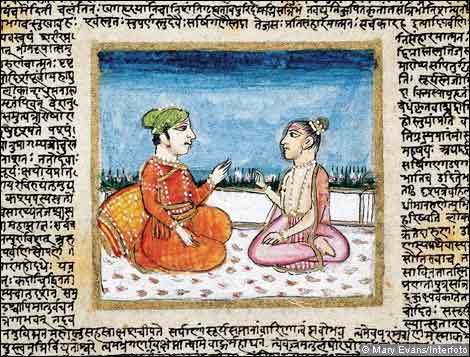Prabhupada, New York, February 19, 1966: […] The spirit of Bhagavad-gita is mentioned in the Bhagavad-gita itself. It is just like this. If we want to take a particular medicine, then we have to follow the particular direction mentioned on the label of the medicine.
We cannot take the particular medicine according to our own direction or by the direction of a friend, but we have to take the medicine under the direction given on the label of the bottle and as directed by the physician.
Similarly, the Bhagavad-gita also should be taken or accepted as it is directed by the speaker Himself. The speaker of the Bhagavad-gita is Lord Sri Krishna. He is mentioned in every page of the Bhagavad-gita as the Supreme Personality of Godhead, Bhagavan. Full Introduction

"The Mahabharata, which describes itself as, “the poetical history of mankind”, is the story of the rivalry of two sets of princely cousins whose enmity culminates in an Armageddon-like war on the battlefield of Kurukshetra. Embedded at its heart lies The Bhagavad Gita, for many, Hinduism’s most profound, philosophical and holy text; a dialogue, on the eve of battle, between the god Krishna and Arjun, one of the princely heroes, about duty, illusion and reality."
“The Difficulty of Being Good — On the Subtle Art of Dharma”
FINANCIAL TIMES | William Dalrymple | September 24 | 2010 23:16 |
[…] Trying to elicit clear moral guidance for modern politicians, civil servants and businessmen from such a spectacularly complex and ambiguous text, and one that is itself so very full of self-questioning, is a very difficult task, and the result is only a mixed success in terms of Sanskrit self-help.
Yet Das’s deeply informed and learned musings on The Mahabharata and its moral dilemmas are invariably so penetrating and full of insight, and the questions he raises so important, that it barely matters. Above all, he draws us back to the text of The Mahabharata itself, one of the greatest of man’s literary achievements and one that, astonishingly, has yet to be translated into English in its entirety: a measure of the degree to which the west still continues to ignore the riches of ancient Indian classical culture. Full Article at FT.com







Speak Your Mind